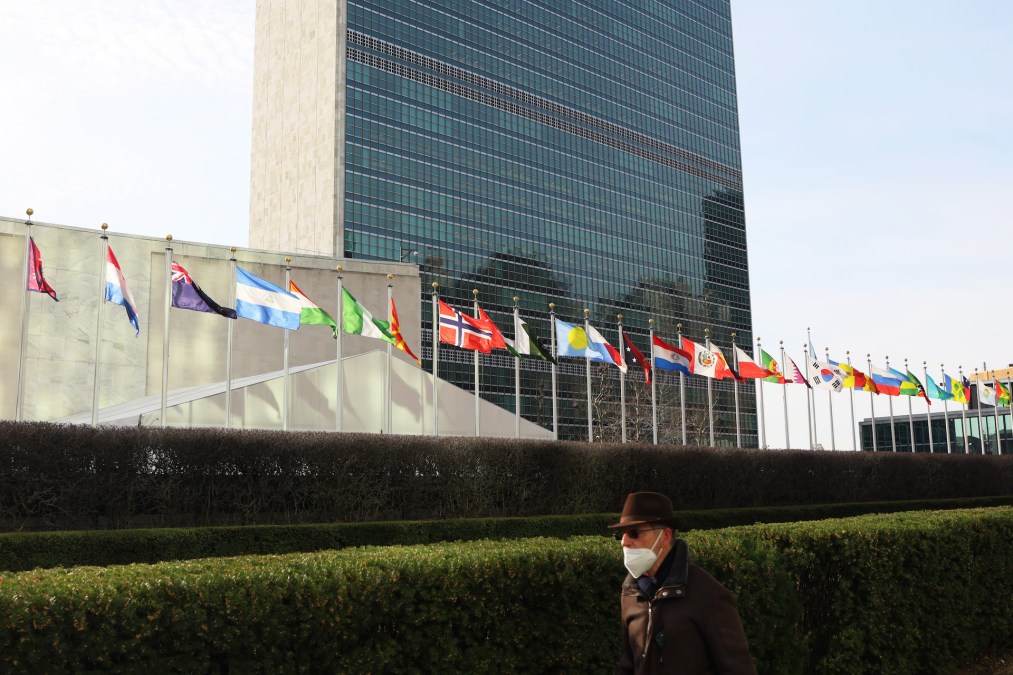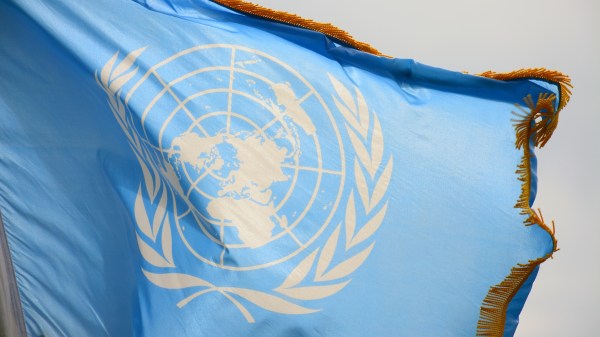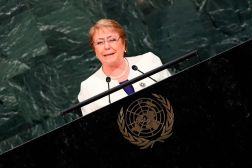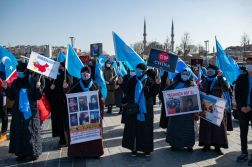UN to begin new phase of negotiations on cybercrime treaty, alarming human rights activists

Human rights advocates are alarmed by looming United Nations negotiations to hammer out a cybercrime treaty that they say could give governments unprecedented power to criminalize free speech and use the Internet to violate citizens’ privacy.
The push to develop a global treaty on cybercrime has largely emanated from the Russian government, whose draft proposal would allow governments to criminalize “unlawful acts motivated by political, ideological, social, racial, ethnic, or religious hatred or enmity, advocacy and justification of such actions or the provision of access to them.”
Russian President Vladimir Putin said last March that he believes “it is necessary to conclude universal international legal agreements designed to prevent conflicts and build a mutually beneficial partnership in the global cyberspace.”
Seven other nation states, including China, have co-sponsored the Russian proposal, which would allow governments to crack down on free speech under the guise of a U.N.-drafted treaty. Advocates say the Chinese and Russian positions may be outliers, but many Latin American and Middle Eastern countries also appear to be at best ambivalent and could support a treaty that criminalizes free speech.
The U.N. convenes to begin negotiations May 30, but U.N. watchers say it could take years to reach an agreement.
Katitza Rodriguez, the Electronic Frontier Foundation’s policy director for global privacy, said the treaty could allow overly broad cross-border surveillance powers, make human rights protections optional and impose legal barriers that prevent states from adopting stronger human rights protections at the domestic level.
“The threat is there, and we need to engage now,” Rodriguez said.
The United States submitted its proposal on April 8, asserting that “nothing in this Convention shall be interpreted as affecting other rights and obligations of states and individuals under international law, including the Charter of the United Nations and international human rights law.”
Jim Lewis, director of the strategic technologies program at the Center for Strategic and International Studies, said the Russian effort is part of a larger strategy to give states total control over the Internet. He said that while Russia has alienated the diplomatic community with its invasion of Ukraine, there is reason to be concerned that much of the non-NATO-aligned world could support stricter controls.
For many developing world countries, Lewis said, there is appeal to “a government that has tight control and where there’s no danger of being kicked out” as opposed to one where “an angry mob storms the Capitol.”
“It might end up being the global reference point for how governments combat cybercrime.”
deborah brown, human rights watch
Many countries resent that the current global cybercrime treaty — known as the Budapest Convention — was negotiated by the Council of Europe largely without input from the rest of the world, which has given the U.N. cybercrime treaty more momentum, Lewis said.
For many human rights and digital privacy advocates in the developing world, the prospect that their countries may adopt a cybercrime treaty that limits their rights is nothing short of terrifying.
In the past decade the Columbian government has dramatically increased its use of digital surveillance to preempt and punish those who question the state while also violently cracking down on protesters, according to Carolina Botero, executive director of the Karisma Foundation, a Columbian civil society digital rights organization.
During 2021 anti-government protests in Columbia the government retaliated, killing and maiming scores of protesters and using digital surveillance to track them. Botero called the events a wake-up call that a new cybercrime treaty could give law enforcement “special power” to prosecute anything it wants as a cybercrime so long as digital communication is involved.
Human rights advocates worry that with such wide-ranging issues up for negotiation among so many disparate countries dangerous, compromises will be hard to avoid.
“You might see things looking really good in one area and then at the end, it gets traded off for something in another area,” said Deborah Brown, a senior researcher and advocate on digital rights at Human Rights Watch. “Some states and governments might be more champions of free expression and be willing to give up on privacy so maybe at the end, they’ll say, ‘Okay, we’re okay with sacrificing access to data for law enforcement in a really intrusive way.’”
Brown said Human Rights Watch has documented many instances of human rights activists going to jail for cybercrimes because of things they’ve said online. She worries that under the treaty anything the “government decides is a crime and that uses Internet is now a cybercrime.”
“It matters because eventually it might end up being the global reference point for how how governments combat cybercrime,” Brown said. “While it’s not something that will be decided tomorrow, it’s something that will have a huge impact in the future so it’s important to pay attention now.”




